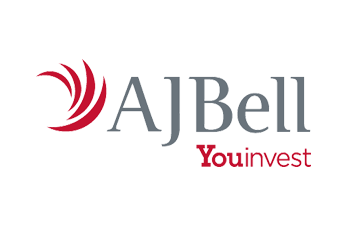Best Low Cost SIPPs – 6 DIY Pension Picks
We review 6 top UK self invested personal pensions (SIPPs) for your savings. While low cost is a key consideration there are many other factors you need to weigh up when picking a pension provider. There are different types of DIY pension platforms with features that may or may not be important to you.
What is the right SIPP for you will depend on your requirements.
What is a SIPP?
A SIPP is a self invested personal pension which allows you to make your own investment decisions allowing you to invest almost anywhere you like. A SIPP is tax efficient with no UK income tax or capital gains tax payable on your investments.
For more information on SIPPS, Hargreaves Lansdown have published a useful FREE guide to SIPPS which you can access here.
What can you invest in with a SIPP?
You have a wide range of choice including:
- Unit trusts
- Investment trusts
- Exchange traded funds (ETFs)
- Individual company shares quoted on UK and recognized overseas stock exchanges
- Government securities
- Insurance company funds
- Deposit accounts
- Commercial property
How can I access money in a SIPP?
From the age of 55 you can access money (age 57 from 2028).
Under current rules you can withdrawn up to 25% as tax free cash. The balance can be kept invested tax free or used to draw an income via a drawdown plan or you can opt to buy an annuity which will provide a fixed income for life.
For more info on how you draw benefits from a SIPP click here.
There are essentially two types of self invested personal pension.
(a) Full SIPP – Aimed at sophisticated investors who require the full range of options including the ability to invest in commercial property, unquoted shares and offshore funds.
(b) Low Cost SIPP – Offered by fundsupermarkets and specialist providers, they still offer a wide range of investment options but are run on a lower cost basis.
In this review we focus the low cost SIPP options available.
Do it with me SIPP platforms and Do it for me SIPP platforms
Are you someone who wants to make your own investment decisions about what your pension is invested in?
or
Would you prefer to give over the investment selection process to an expert in this area?
Many SIPP platforms offer both. Catering for first time investors through suggested fund options or strategies through to experienced investors where the focus is on providing advanced tools to allow independent decisions.
You get a range of active investment management, from advice and assistance to completely hands-free:
SIPP Platforms that do both:
See below 4 of the largest platforms in the market:
 Invest From:
Any Lump Sum or £25 per month
Investment Options:
Invest From:
Any Lump Sum or £25 per month
Investment Options:
A low cost award-winning SIPP that gives you a choice of over 40,000 investments; Selected funds; Ready made portfolios.
Admin Charges:
Sipp fee: £5.99 pm – assets up to £50,000, £12.99 pm – assets over £50,000
Transfer In Existing Pensions:

A low cost award-winning SIPP that gives you a choice of over 40,000 investments; Selected funds; Ready made portfolios.
Sipp fee: £5.99 pm – assets up to £50,000, £12.99 pm – assets over £50,000
 Invest From
£20 pm
Investment Options
Invest From
£20 pm
Investment Options
Thousands of funds to choose from; Select 50 – Browse a list of expert picks. Pathfinder – Risk profiled fund options. Investment Finder – Search 1000s of investment ideas.
Service Fee
Less than £25,000: 0.35% if you have a regular savings plan or £90 (£7.50 a month) if you don’t
£25,000 or more but less than £250,000: 0.35%
£250,000 or more but less than £1 million: 0.20% – and you will automatically qualify for Fidelity’s Wealth Management Service benefits
£1 million+: 0.20% a year for the first £1 million and no service fee for investments over £1 million
Transfer In Existing Pensions

Thousands of funds to choose from; Select 50 – Browse a list of expert picks. Pathfinder – Risk profiled fund options. Investment Finder – Search 1000s of investment ideas.
Less than £25,000: 0.35% if you have a regular savings plan or £90 (£7.50 a month) if you don’t
£25,000 or more but less than £250,000: 0.35%
£250,000 or more but less than £1 million: 0.20% – and you will automatically qualify for Fidelity’s Wealth Management Service benefits
£1 million+: 0.20% a year for the first £1 million and no service fee for investments over £1 million
Do it for me pension platforms
With do it for me platforms you get an expert to do the investing for you – typically you choose how cautious or adventurous you want to be and the timescales you want to work to:
There are no tables for this criteria
DI
10 things to consider when choosing a SIPP provider:
1. Do you already have an idea of the investments you want to invest in?
If you are looking to trade shares only then a platform that offers low cost dealing fees may be a priority. A number of platforms offer advanced research trading tools to entice you to them.
Or you may want buy foreign shares (not all platforms cater to this) or trade in ETFs (exchange-traded funds – usually tracking an index).
If you are more interested in collective funds then this again may determine who you go with. Charging structures for funds held on the platform will vary.
2. Do you want to manage your own SIPP investments, or have someone else do it for you?
Your answer to this will depend on:
- How confident are you about investing?
- Will you enjoy getting underneath the bonnet?
- Do you have enough time to be an active manager?
- Would you mistrust someone else making these decisions on your behalf – or have more confidence in their market knowledge than your own?IY investment platforms
3. Do you want to invest just in funds, or shares and funds?
Check what’s on offer, if you want to have the flexibility: some platforms don’t offer both.
4. Do you want your platform to be independent or fund-owning?
Do you want to be able to invest in independent funds, or are you happy investing via a fund manager such as Vanguard that offers just its own funds?
5. Do you have ISAs or other direct investments?
You may want to look for a platform that can manage your self invested personal pension or SIPP as well: not all of them can.
6. Do you want to do a lot of trading?
Active investors will want to look for a platform that offers the best research, and the lowest fees for volume trades in funds, and stocks and shares.
7. How easy to use is this SIPP platform: what kind of tools and customer service does it offer?
These are often the criteria that count most highly with users, so do some research and read the reviews.
- Many investors are prepared to pay a bit more in fees for a platform that offers really useful apps and services.
8. How much are you investing or transferring to the SIPP platform?
You will want to look at the fee structures, and the thresholds for reduced fee charges.
- Platforms that charge flat-rate fees work better for large investors with £50K or more in their portfolios. Interactive Investor provide a flat fee structure which could save you money over the longer term.
- Some SIPP providers will cover some of the costs of transferring away from an existing SIPP provider up to a set amount e.g. Fidelity will cover any exit fees your current provider may charge, up to £500 per person (T&Cs apply).
9. How has this SIPP platform performed?
You may want to look at the awards and reviews left by industry experts and customers to get a feel of personal experience.
10. And finally… how much will a SIPP platform cost?
If you’ve worked through the other decision criteria first, you’ll understand that you shouldn’t choose solely on cost.
Some of the more expensive platforms are highly rated by their clients for usability and client support, or show consistently good returns.
AJ Bell, Hargreaves Lansdown and Fidelity, for example, charge tiered account management fees which are higher than others, but they’re rated highly by investors for ease of use and good customer support. Interactive Investor have a flat fee charging structure which for larger SIPP portfolios could be more cost effective.
- Choosing active management of your investments isn’t always cheaper than DIY: there are some price advantages to trading in scale.
- There has been a push to get platforms away from commission-based charges towards “clean pricing” annual fees.
- You need to be looking at annual administration charges, dealing fees, and any other costs, including exit charges.
If you’ve decided to switch SIPP platforms…
Many SIPP providers won’t charge any fees for transferring in or out. Providers such as Interactive Investor provide a step by step guide on how the transfer process works. The good news is that most providers who you are transferring to will do most of the heavy lifting for you. Timescales on transferring will depend on whether you are transferring a cash lump sum, in which case the timescale is typically 10 days or so, or whether you are transferring existing investments in which case the transfer can be much longer – plan for 8 to 12 weeks for the process to be completed.
Undecided on your options?
When it comes to making investment decisions using the services of a qualified independent investment adviser may be worth considering.
Most IFAs will offer a free no obligation initial discussion. A good adviser based on what you are looking to achieve will put together a plan for your situation. Part of this plan may be helping you to decide what pension platform is suited to your situation.
We have partnered with an organisation Unbiased UK who will help you find a qualified adviser in your area. Find an pension adviser »
For more information on SIPPS, Hargreaves Lansdown have published a useful FREE guide to SIPPS which you can access here.
Special Offer:
Its a good idea to check whether your current provider will charge you for transferring out. AJ Bell will pay you up to £500 to cover your exit fees when you move an account worth £20,000 or more. See transfer offer for more info.
No news, feature article or comment should be seen as a personal recommendation to invest. Prior to making any decision to invest, you should ensure that you are familiar with the risks associated with a particular plan.
If you are at all unsure of the suitability of a particular product, both in respect of its objectives and its risk profile, you should seek independent financial advice.
Tags










